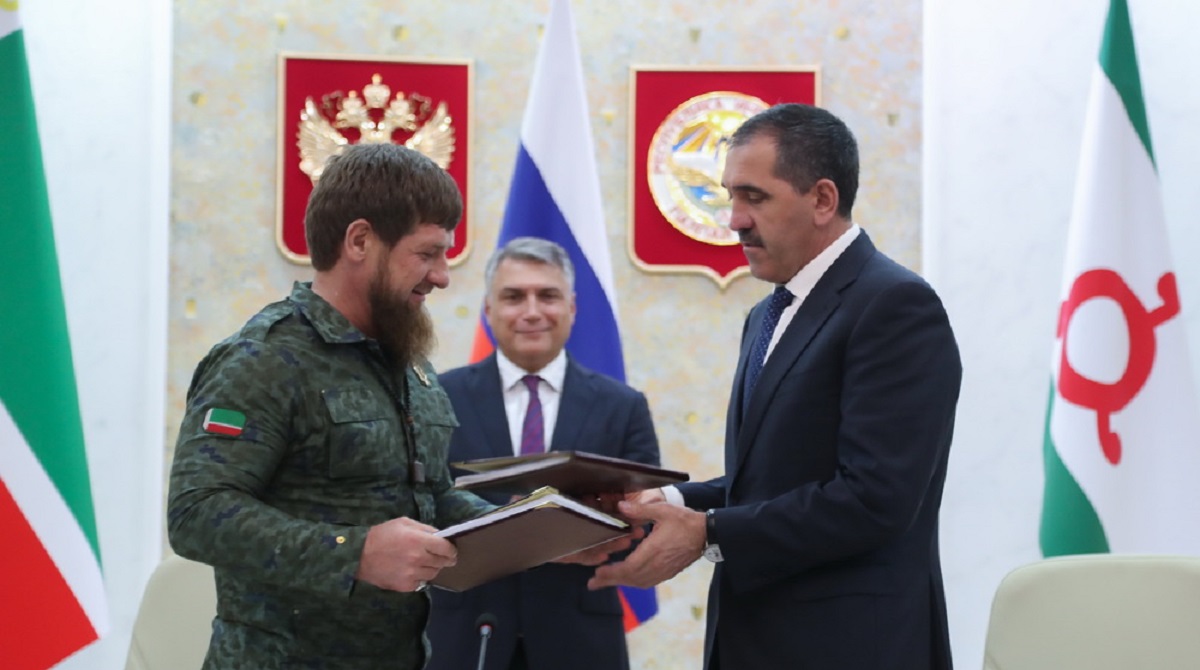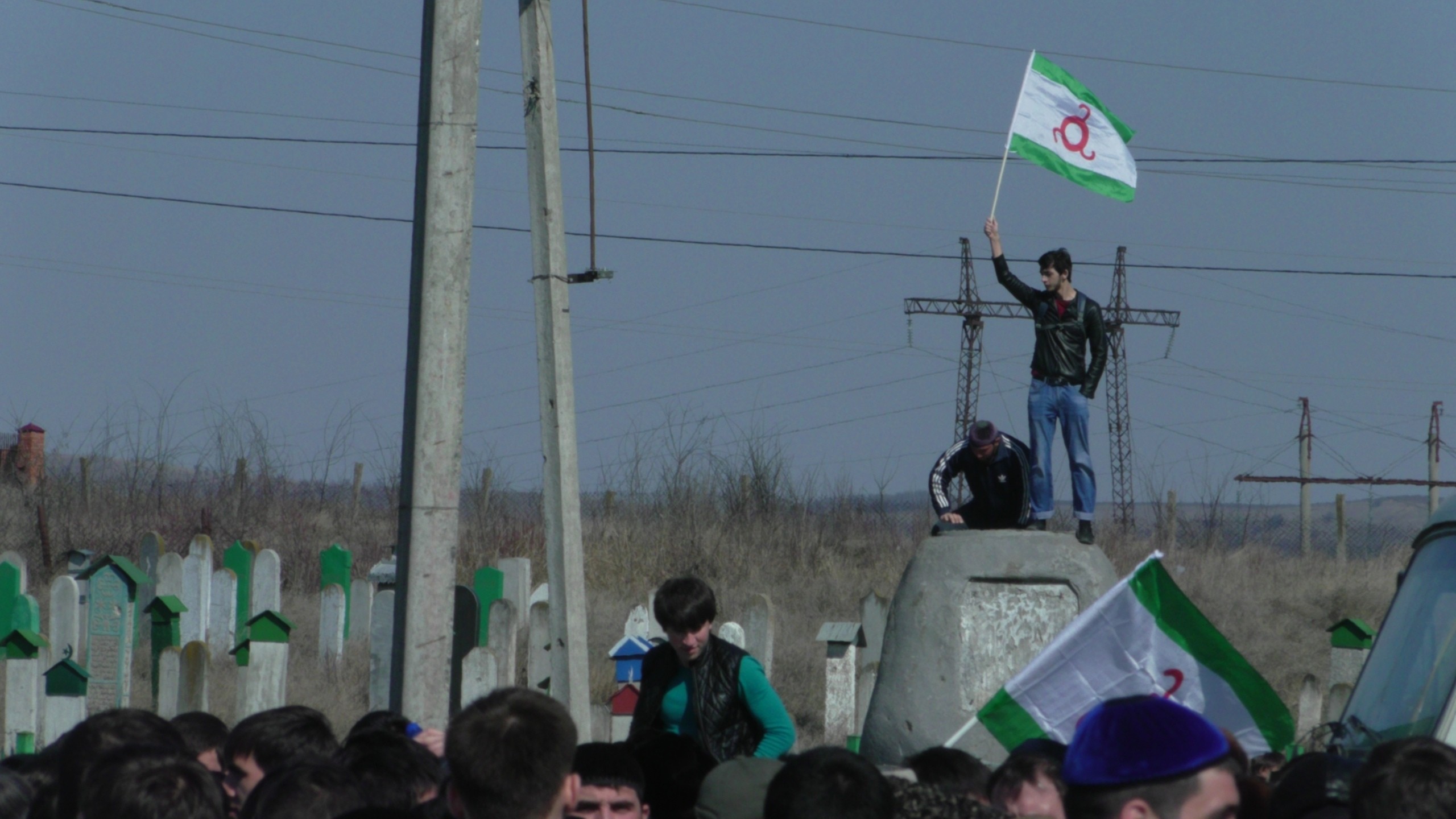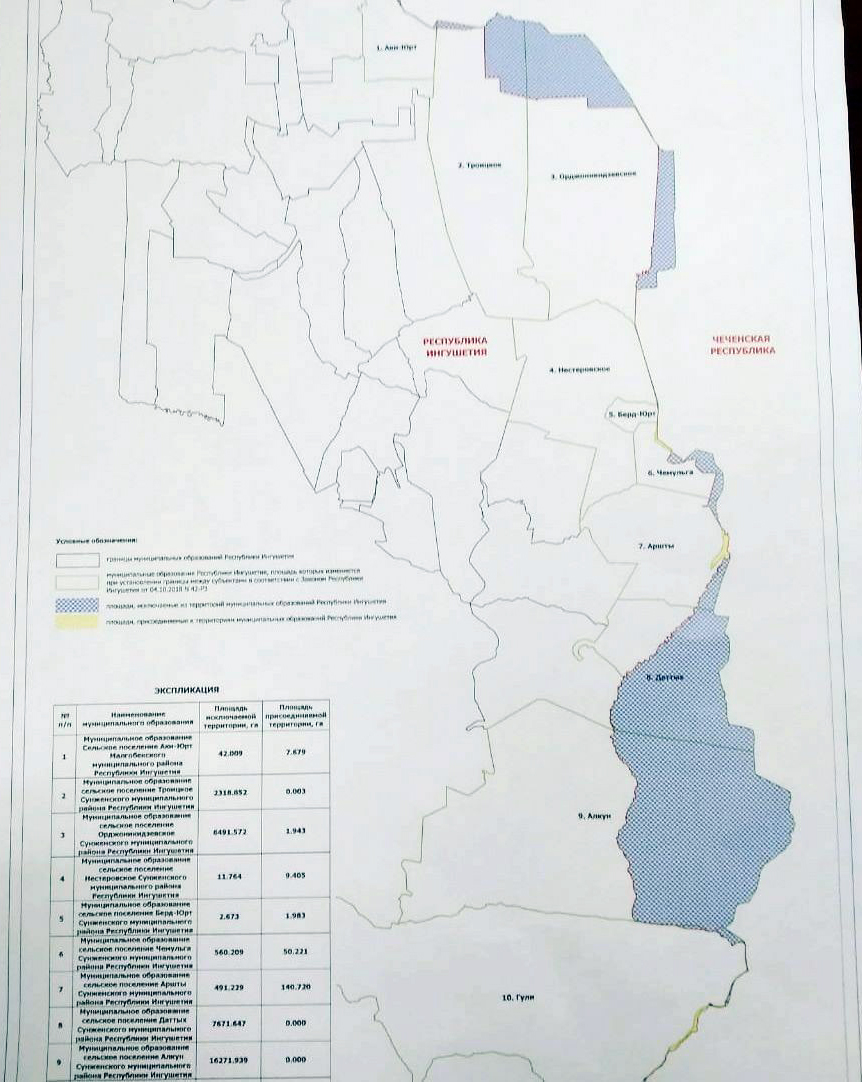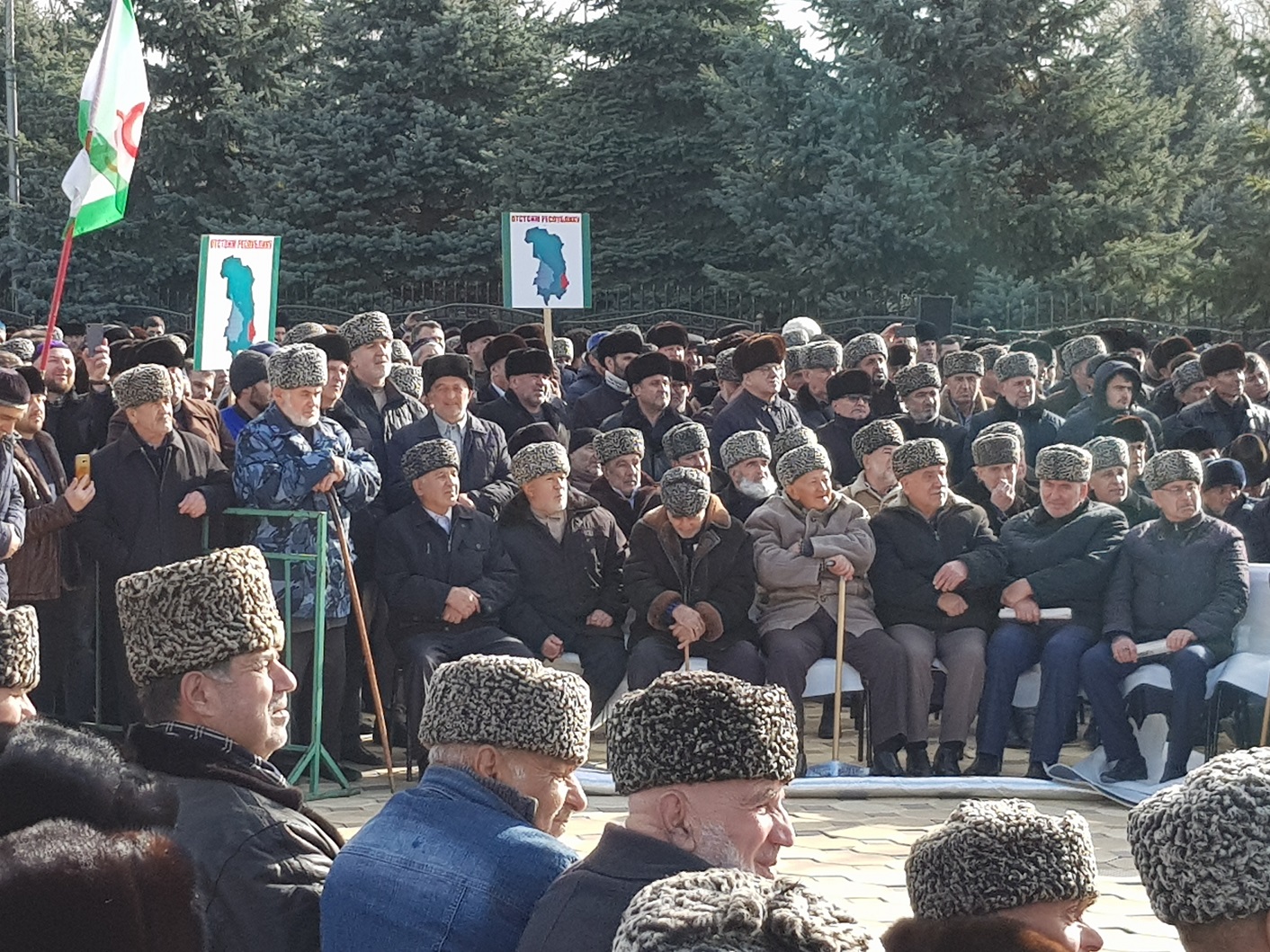

A court in the Russian Republic of Ingushetia has begun considering allegations that the parliamentary vote approving a land deal with neighbouring Chechnya was falsified.
The controversial deal, which handed around 340 square kilometres (about 9% of Ingushetia’s territory) to Chechnya, was signed by the heads of Ingushetia and Chechnya on 26 September 2018.
On 4 October 2018, MPs from Ingushetia’s regional parliament, the People’s Assembly, approved the deal 17-4 in a secret ballot, leading to weeks of street protests in the Ingush capital. Following the vote, a number of MPs claimed it had been falsified, insisting they had voted against the deal.

[Read on OC Media: Protests erupt in Ingushetia as MPs say Chechnya land swap vote was falsified]
MP Beyal Yevloyev told OC Media that six MPs from the People’s Assembly of Ingushetia appealed to the Magas District Court. He said that along with these six, two more MPs testified in court that they had voted against the deal.
According to their lawsuit, the MPs were asking the court to demand to see the report of parliament’s Counting Commission for the date of the vote, as well as the individual ballots used. They also asked that the court suspend the law approving the deal until it had ruled on its legality.

According to Anzhela Matiyeva, an activist against the deal who was present in court, the chair of the Counting Commission, MP Magomed Tiboyev, insisted he had not ‘touched the ballots and was ready to swear on the Koran’.
Matiyeva told OC Media that Yuriy Panchenko, the judge presiding over the case, read Tiboyev’s testimony to the Investigation Committee in which Tiboyev stated that he personally counted the ballots together with his colleagues Abdul-Khamid Bruzhev and Vasiliy Svetlichny.
When the judge asked whether the issue of fraud was raised in the Ingush People’s Assembly on 4 October, Tiboyev said he did not remember, according to Ingush news site Fortanga.
Fortanga was set up in 2018 by activists in Ingushetia opposing the Chechen land deal.
There was some controversy over the choice of Panchenko as the judge on the case, with Zakri Mamilov, head of the Ethics Committee of the People’s Assembly, accusing him of being biased.
Bashir Tochiyev, the lawyer representing the plaintiffs, told OC Media he had requested that Panchenko be recused from the case three times; all were unsuccessful.
The next court hearing is scheduled for 6 March.
Ethics investigation
The basis for the lawsuit by MPs was a report by the People’s Assembly’s Commission on MPs’ Ethics, headed by Zakri Mamilov. The Ethics Commission concluded on 10 December that there had been procedural violations during the ratification of the border agreement, as well as an ‘abuse of office’ by parliament’s Counting Commission.
The report said that despite the Counting Commission results showing MPs voting 17-4 in favour of the law, around 10 had voted against it.
According to the report, members of the Counting Commission did not attend meetings proposed by the Ethics Commission to discuss the topic.
Following the publishing of the report, MPs voted on 16 January for a new composition for the Ethics Commission.
According to Fortanga, not all MPs were notified of the parliamentary session to vote in the new Ethics Commission.
MP Beyal Yevloyev, a former member of the Ethics Commission, told OC Media that the results of their investigation had already been sent to the Investigative Committee of the North Caucasus Federal District in the hope they would initiate a criminal case.
‘Our appeal was alternately accepted by the [Investigative Committee of Russia] for the North Caucasus Federal District, then returned to the republic again, they don’t want to open a criminal case, the situation is still not clear. This is a political issue, so the state machine reluctantly works on our case’, Yevloyev said.
Ingush Constitutional Court overruled
The legality of the deal was also challenged by the Constitutional Court of Ingushetia, which ruled on 30 October 2018 that the deal violated Ingushetia’s constitution, as a referendum was required in order to adopt it.
However, the decision of the Ingush court was overruled on 6 December by the Constitutional Court of Russia.

The head of the Ingush constitutional court, Ayup Gagiyev, boycotted the hearings arguing that the federal court had no jurisdiction over its decisions.
The Russian Constitutional Court’s ruling was met with widespread anger in Ingushetia.
The Ingush Committee of National Unity, which includes representatives of Ingush public organisations and teips (clans) vowed after the decision not to stop protest activities against the deal.
In a statement published on Ingush news site Fortanga, the committee said that following the court’s ruling, ‘the Ingush people understood that the federal centre was ready to insult the honour of an entire people in order to please their vassals’.
‘We responsibly declare that we will fight till the end using all possible legal and accessible mechanisms to preserve and restore the territorial integrity of Ingushetia.’
Chechen border talks with Daghestan
Chechen authorities had openly claimed territories in eastern Ingushetia for a number of years, despite a 1993 Chechen–Ingush agreement that left most of Sunzha District within Ingushetia.
The Chechen claims, which refer to Soviet maps from the 1930s, continued even after Ingush President Murat Zyazikov and Chechen President Akhmat-Khadzhi Kadyrov (the father of the current leader, Ramzan Kadyrov) confirmed the existing borders in 2003.
Between 1936–1993, Chechnya and Ingushetia existed as the Chechen–Ingush Autonomous Soviet Socialist Republic and the border between them was not demarcated.
In January, Chechnya also began talks on formalising the border with its eastern neighbour, Daghestan.
[Read on OC Media: Daghestani border communities demand transparency in Chechnya border discussions]
In addition to restoring Daghestan’s Aukh District, a historically ethnic–Chechen district that was abolished after the 1944 deportations, there has been widespread speculation online and in local media that Daghestan’s Botlikh District, which borders Chechnya, would be discussed.
Details of what has been discussed in the meetings so far have not been publicly released.
[Read on OC Media: Controversy over Chechen Aukh District resettlements continues in Daghestan]
A map published on the Chechen parliament’s website on 8 November showed a part of Daghestan within Chechnya.
On the map, the entirety of Lake Kezenoy-Am, located on the border of the Vedeno District of Chechnya and the Botlikh District of Dagestan, and part of the area near the village of Ansalt in the Botlikh District were shown as being a part of Chechnya.
Following the report, the map was taken down and Chechen authorities said it had been a mistake.









